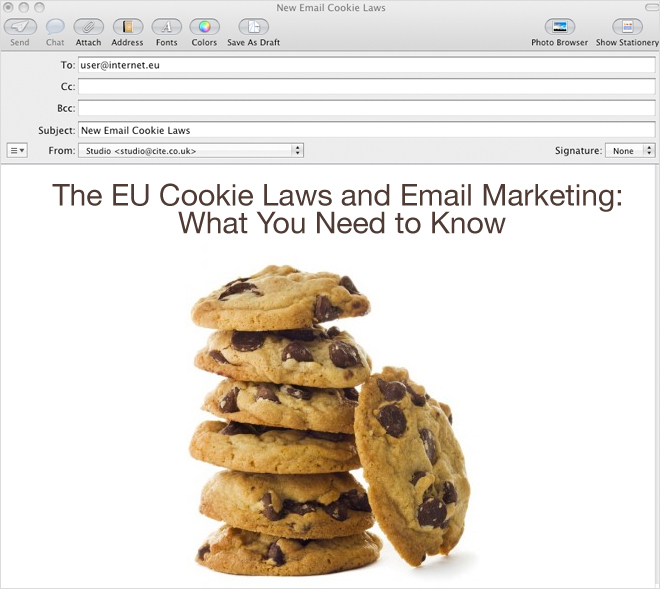How the EU Cookie Law Will Affect Email Marketing
Email marketing is one of the most effective ways to reach consumers, so it’s no surprise that everyone from small businesses to multi-national corporations are using it to market their products and services. And while more and more advertising spend is being channelled towards email marketing, new EU privacy legislation is coming into effect that will change they way emails can be sent. Before sending out your next email marketing campaign, here are some things you should know…

In 2009, the Privacy and Electronic Communications Regulations (PECR) was amended to include new rules about how cookies and other tracking technology could be used in websites and emails. Although the changes officially went into effect in May 2011, UK companies have been given a year’s grace period to comply with them. That will end on May 26, 2012 and any company that uses email marketing needs to abide by them or risk facing fines of up to £500,000.
The main focus of the regulations are targeted at websites and how they use on-site advertising, analytics, and other stored traffic information, but since email marketing uses open tracking systems to monitor the engagement of recipients (for example, who opened it, what links they’ve clicked, etc), email marketers must now gain consent to track recipients’ information.
While we can’t give legal guidance on what you have to do to follow the new regulations and protect your campaign, here are a few key points to keep in mind:
• Get consent before tracking and monitoring email engagement. This applies to new subscribers as well as those currently on your database.
• Include a message on your sign up form stating that you will be tracking engagement with your emails. For example “Sign up to our monthly newsletter to get the latest information on our company. Signing up also means you’ll allow us to track and monitor the emails we send to you so we can improve our communication with you.”
• To get permission from your current recipients, make consent the call of action on your next email. Keep this message above the fold and include it in an image as well as part of the text.
• If you are using a “soft opt in,” meaning you don’t ask for consent at the point of capturing an email address, follow up with an email asking permission to track user engagement.
• Include a Privacy Policy that informs people on what tracking you will be carrying out, why you use it and how it will affect your recipients.
• If your email service provider tracks additional cookie data, beyond that of basic tracking systems, you’ll have to gain permission to use that too.
These new legislation also applies to triggered emails, including those that are sent after an e-commerce transaction. The regulations are aimed at protecting recipients that are based in the EU, so even if you do not send emails from an email service provider in the EU, you will have to follow them if any of your recipients are based there.
With only a few more months before all companies have to comply with this new legislation, now is the time to make sure you’ve put the right measures in place.
For more information on our email marketing services, contact us today.



